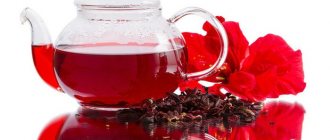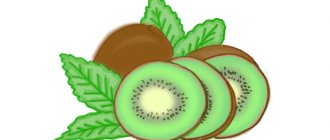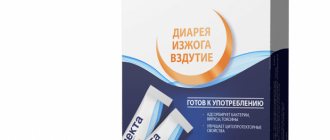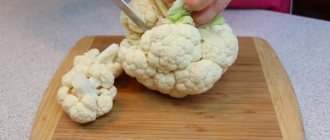Often nursing mothers think that their diet is quite meager, they want to eat something tasty, so they choose those foods that are allowed for children, thinking that since children can, then adults can too. But always, and in the case of Hematogen in particular, in addition to positive qualities, there are also negative ones. Therefore, you can often hear a question in antenatal clinics or from a pediatrician: can a mother eat Hematogen while breastfeeding?
Hematogen is a useful supplement, but it has both positive and negative qualities when used while breastfeeding.
Composition and benefits
Hematogen contains nothing more than a protein extracted from the blood of a bull, the second name is albumin. To add sweetness to the bar, they add nuts, pure sugar, honey, condensed milk, and sometimes all kinds of additives - dried fruits, seeds. Such sweets were created in order to increase the level of hemoglobin in the blood. Hematogen can easily be bought at a pharmacy without a prescription, but doctors often prescribe this delicacy for patients whose outpatient records include a diagnosis of anemia, or iron deficiency.
In addition to protein, it contains amino acids and vitamins, which have a beneficial effect on vision and help improve health in kidney and gallbladder diseases. Sweet bars can be eaten even with ulcers and liver diseases; they support the immune system and also prevent colds. In case of acute iron deficiency during breastfeeding, the doctor may also recommend Hematogen, since it is able to replenish the level of useful microelements, but it should be consumed in a limited manner. Symptoms of a lack of minerals and iron in the body:
- brittle nails;
- hair falling out;
- tooth pain;
- weakened immunity.
How will hematogen affect the expectant mother?
This article talks about typical ways to solve your issues, but each case is unique! If you want to find out from me how to solve your particular problem, ask your question. It's fast and free
!
Hematogen stimulates hematopoiesis and enhances the absorption of iron by the intestines. These properties, however, can lead to nausea and, in rare cases, diarrhea. This happens because it contains carbohydrates, which cause increased fermentation processes in the intestines.
Hematogen is often recommended during pregnancy, since during this period the woman experiences iron deficiency. A decrease in hemoglobin levels in the blood can lead to anemia. However, in this case, hematogen is used as a medicine, and in no case should it be abused. Excessive use of this drug can lead to disturbances in the development of the fetus, as well as to an increase in blood density, including the formation of blood clots. The occurrence of blood clots in the arteries supplying the placenta interferes with normal nutrition of the fetus, leading to various pathologies. An excess of iron in the body also contributes to the development of atherosclerosis.
Rules for use during gw
When introducing Hematogen into the diet of a nursing mother, as with the introduction of each new product, it is worth following some rules:
- in the first 6 months after the birth of the baby, it is better not to eat the bar;
- There is no need to eat the whole delicacy at once; it should be introduced into the mother’s diet gradually, starting with one slice or even half. It is better not to abuse such a food additive, and if there is one, then in strict accordance with the prescribed prescription;
- The healthy treat contains a large number of allergenic ingredients, to which some children may develop hypersensitivity, so at the first sign of an allergy to any component, you should not eat the bar;
- Hematogen is consumed mainly because of iron, which brings both benefits to the body and harm - an excess of the beneficial substance affects the taste of milk, so the first time after drinking it, it is better to express and watch the baby’s reaction, and only after its absence should you continue feeding and eating tasty sweets;
- if the baby’s reaction is good, Hematogen should be chosen in the classic version, without dyes, even natural ones, and additives;
- Several varieties of Hematogen are prohibited from being consumed during lactation; if there is such a recommendation on the label, then you should not ignore it.
Excess iron in the body of a nursing mother is no less harmful than a lack of this important element.
Indications for use
Metabolism is normalized, the mucous membrane of the gastrointestinal tract is strengthened. The use of hematogen is allowed for people with anemia, gastrointestinal ulcers, after major operations, as well as with global blood loss, for the purpose of preventive treatment of human vision pathologies.
Doctors advise the use of hematogen for children and adolescents with insufficient weight, slow growth, and lack of attention. With an unbalanced diet, the product will bring invaluable benefits to the body.
Is it possible for a mother to eat hematogen while breastfeeding?
What are the dangers of an excess of iron in the body of a nursing mother?
Almost every person has at least once heard about anemia or low hemoglobin, but iron overload is not described in such detail. The disease is called hemochromatosis and with hepatitis B it can be no less dangerous than a deficiency of a microelement. It develops due to the accumulative effect of iron in the liver and pancreas, and is also often hereditary in nature or manifests itself as a complication of chronic diseases, diabetes. In addition, an excess of iron in the body of a nursing woman can be acquired when an excessive amount of the substance enters with food or drink. The reasons for this phenomenon:
- a large percentage of iron in tap water;
- alcohol addiction;
- taking additional sources of iron;
- liver diseases.
It is worth noting that iron is an element that is very well absorbed by the body, that is, in order to get an increased dosage with food, you need to try very hard, it is almost impossible.
The dangerous consequences of an excess are cirrhosis of the liver, hepatitis or tumor formation, or the manifestation and development of chronic diseases that were of little concern before. At the first symptoms - yellowed mucous membranes, pale skin, the appearance of new pigment spots on the extremities or abnormal heart rhythm - you should immediately consult a doctor for a diagnosis and treatment.
Why should a nursing mother take hematogen into account?
It happens that after the birth of a child, a woman’s hemoglobin level decreases significantly. The reason for this lies in the fact that during childbirth a woman loses a large amount of blood. But even after childbirth, hemoglobin can still decrease, and this means that you need to find the right way to increase it correctly, without harming the baby or causing an allergic reaction.
MOTHER'S DIET during breastfeeding by month | What can you eat during breastfeeding, infant colic and allergies LilyBoiko
Why children shouldn't eat persimmons
Mom ate my hematogen
How to increase hemoglobin
Is a decrease in hemoglobin in a pregnant or breastfeeding woman dangerous for the child? — Dr. Komarovsky
Is it possible to increase hemoglobin with food? — Dr. Komarovsky
What is HEMATOGEN?
What should you not eat while taking iron supplements? — Dr. Komarovsky
Is it possible to eat sweets?
About breastfeeding consultants and feeding until milk disappears completely - Komarovsky
The main component of hematogen is animal proteins albumin. They concentrate many useful substances for humans. To improve the taste, this product also contains:
- molasses,
- fructose,
- sucrose,
- condensed milk,
- flavorings.
Hematogen is often found with fillers: dried fruits, nuts, seeds, and pieces of chocolate. Usually their concentration is small, but thanks to them, additional useful elements are present: vitamins, microelements, acids. The main task that hematogen copes with well is replenishing iron reserves.
Compatibility with other products and drugs
Hematogen, like many useful supplements, combines well with some substances, but poorly with others. So, you should not use the bars together with calcium, which interferes with the absorption of iron, that is, you should not wash down the sweet dessert with milk drinks, or eat it after dishes with cabbage, as well as semolina and rice porridge. If dinner or lunch contained cereals, liver dishes, meat or fish, then it is better to eat Hematogen only after a few hours. For children, a tasty candy bar replaces a full afternoon snack or serves as a good snack, but not another dessert after ice cream or cake. Also,
Hematogen's beneficial substances are poorly absorbed together with fatty ingredients. You should not consume a healthy bar in parallel with antibiotics.
In addition, poor compatibility will be with:
- Tetracycline;
- Oxycycline;
- Levofloxacin and other similar drugs.
You should use Hematogen with caution and only after prior consultation with your doctor when taking:
- Diclofenac;
- Ketoprofen;
- Ibuprofen;
- Aproxena.
For proper heart function and normal blood pressure, it is harmful to combine with:
- Vesanoid;
- Trimethoprim;
- Penicillamine.
Nursing mothers should use hematogen strictly on the recommendation of a doctor in certain dosages no earlier than the second month after birth.
How to use the drug according to the instructions
To obtain a healing effect, it is recommended to divide a daily dose of 40–50 g of Hematogen into three doses. Dietary supplements do not combine well with food. Calcium-containing foods (milk, cottage cheese), rice and semolina porridge, cabbage salads, and fatty foods prevent the body from absorbing iron. Therefore, you need to eat Hematogen in between meals.
. The supplement should not be taken at night. Otherwise, you may have trouble falling asleep and you will feel heaviness in your stomach.
It should be noted that Hematogen affects the effectiveness of many drugs: antibiotics, non-steroidal anti-inflammatory drugs, diuretics, drugs for the heart and blood pressure normalization. And this is a big disadvantage, given the small selection of safe medications for lactation. You should not use Hematogen and multivitamin complexes at the same time. Therefore, you should include the supplement in your diet only after consulting your doctor. The recommended preventive course of dietary supplements is three to four weeks. If any allergic reactions occur in a child, the use of Hematogen should be stopped immediately.
Contraindications and side effects
Despite the positive properties of Hematogen, it has a wide range of contraindications:
- diabetes;
- obesity;
- hypersensitivity to the components of the sweet bar;
- anemia, the cause of which is other than iron deficiency;
- varicose veins;
- thrombophlebitis;
- age up to 3 years.
Side effects most often affect the gastrointestinal system, irritating the mucous membranes, and manifest themselves in the form of vomiting, nausea, heaviness and discomfort in the abdominal area. In addition, various allergic reactions, an unpleasant aftertaste, and often headaches were observed.
Allergenicity of “chocolate” and contraindications
Protein molecules - bovine albumin, like all proteins foreign to the human body, when released from the intestines into the blood in a state not broken down into amino acids, can provoke an allergic reaction. But studies conducted by the Institute of Nutrition (on guinea pigs) showed that the likelihood of such incomplete breakdown in cow's milk albumin is much lower than in chicken egg albumin. And yet such a possibility is not excluded.
Also, when breastfeeding, you should pay attention to the child’s predisposition to an allergy to animal milk protein - casein, since condensed milk is present in the hematogen. The same applies to the other components of hematogen
The bar, due to its high carbohydrate content, has a high calorie content, so it is not recommended for people who are obese or prone to it. The main carbohydrate of hematogen is sucrose, so it is contraindicated for patients with diabetes.
Alternative to Hematogen
During the period of feeding the baby with breast milk, special food restrictions should be observed only for the first month or at least the first two weeks. After this, you can gradually try most foods and sweets. Therefore, at first you should refrain from consuming Hematogen, and then, as an alternative, use all the products included in its composition, but separately - honey, nuts, a little dark chocolate, dried fruits. Only in moderation and after a period of time can a nursing mother begin to eat bars. In terms of its purpose, it is more of a food supplement than a medicine; it should be taken, following the dosage, after the baby is 2 months old.
In practice, nutritionists and therapists do not prohibit healthy mothers from eating one, or less often two, bars per week. If the safety rules for administration and the permissible dosage are observed, Hematogen only brings benefits for mother and baby.
Admission rules
Before you start using this dietary supplement, a nursing mother should know how to take it correctly. The following list of rules must be observed:
if a newborn has an allergic reaction to hematogen, then it should be completely excluded from the diet of the nursing mother; A large amount of iron in a bar can change the taste of breast milk, which may not be to your liking. This is easy to notice because in this case the newborn refuses to latch on to the breast
Before the first dose, you must first express the milk and see how the baby behaves; the first month of breastfeeding is the most critical, so during this period of time it is better not to take risks and refuse to take hematogen; Hematogen can be introduced into the menu of a nursing mother only when the child is 6 months old; During lactation, you need to be careful when consuming this product and constantly monitor changes in the child’s behavior. At the slightest sign of a negative effect of the product, discard it; for the first dose you should limit yourself to one cube per day, then you need to see how the baby behaves
If no side effects occur, the dosage can be increased to 3 cubes; a nursing mother should opt for classic hematogen without the addition of food additives and flavorings; A woman who is breastfeeding should strictly adhere to the dosage and frequency of administration recommended by the doctor when consuming the bars.
How to choose a quality product?
When choosing a hematogen, you should focus on its composition, weight, and date of manufacture. It is also important to pay attention to the conditions in which it is stored and whether it has expired.
Make sure there is food albumin in the bar. Today, some manufacturers use the name “hematogen” for the confectionery product they produce, which does not even smell of albumin. This means that such products have no beneficial properties, but are ordinary candy.
When purchasing, pay attention to the expiration date of the bar. It can vary from 6 months to 1 year. After the specified period, the hematogen is a product that has no benefit, it hardens and its further use is unacceptable.
The hematogen packaging should not have visible damage or signs of tampering.
If a product is registered as a medicinal product, it can only be purchased at a pharmacy. And the bar, which is a dietary supplement, can also be sold by specialized departments of the retail chain.
The benefits and harms of hematogen during pregnancy
Hematogen, in addition to its high iron content, also includes many different additives. These include vitamins of different groups: A, B1, PP. For some this is salvation, but for others it is a severe allergy. If there is at least some hint of an allergy, a pregnant woman should forget about hematogen.
The supplement has many more beneficial properties.
Hematogen, taken regularly and within normal limits:
- has a positive effect on the respiratory system;
- increases the percentage of vision, which quite often decreases due to pregnancy;
- it is good as a support for loss of appetite and weight.
If you regularly take Hematogen, you can improve the functioning of the gastrointestinal tract; even people with peptic ulcers use it.
But the main advantage and task of hematogen is iron replenishment. During pregnancy, women have a very high need for iron; it is necessary for the optimal development of the placenta and fetus. In addition, iron will be essential during breastfeeding.
The most vitamins are required in the third trimester of pregnancy, when the fetus begins to actively gain weight. A pregnant woman should definitely consume 27 mg of iron per day for the normal full development of the child.
However, taking too much of the supplement will lead to excess weight. Therefore, when taking Hematogen, do not forget that there are external sources of iron - meat, fruits and vegetables.
Hematogen, what kind of product?
Hematogen is not only a healthy product, but also has a pleasant taste. For its production, animal protein is used - albumin, which is obtained from the blood of cattle. It is pre-treated to prevent infections and then dried. As a result, albumin is obtained, which is used to make hematogen.
To give the tile a sweetish taste, condensed milk, honey, molasses and sugar substitutes are added to its composition. Today there are many varieties of candy bars with different flavors on sale. They may contain nuts, seeds, jam, etc. as additional ingredients.
Before using hematogen during hepatitis B, make sure that the composition does not contain additives that cause allergic reactions. Most often it is honey, nuts, chocolate.
Contraindications
Only at first glance does hematogen seem to be an absolutely harmless delicacy. In fact, it has a whole list of various contraindications. Therefore, nursing mothers should take it with extreme caution.
The use of hematogen on hepatitis B is prohibited if:
- there is intolerance to at least one of the components in its composition;
- the woman has anemia that is not associated with a lack of iron in the body;
- the baby refuses mother's milk.
If a nursing mother does not have the above contraindications, then she can eat a small piece of her favorite treat.
Hematogen must certainly be purchased at the pharmacy. It is better to choose a product that does not contain foreign additives. And yet, nursing mothers should definitely consult a doctor before using hematogen.











